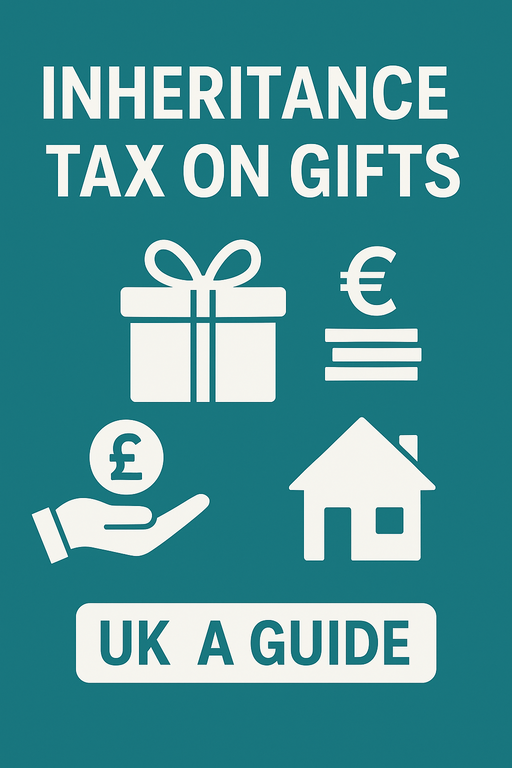Understanding Inheritance Tax on Gifts in the UK: A Comprehensive Guide
Inheritance Tax (IHT) can significantly impact the value of an estate passed on to heirs. One effective strategy to mitigate IHT is through gifting assets during one's lifetime. However, it's crucial to understand the rules governing such gifts to ensure they don't inadvertently increase the tax burden. This guide delves into the nuances of gifting and its implications on IHT.
What Constitutes a Gift for IHT Purposes?
Under UK law, a gift encompasses various assets, including:
- Monetary transfers
- Household items such as furniture, jewellery, or antiques
- Real estate, land, or buildings
- Stocks and shares listed on the London Stock Exchange
- Unlisted shares held for less than two years before death
Even selling an asset below its market value can be considered a gift. For instance, selling a property to a family member at a reduced price results in a gift equal to the difference between the market value and the sale price.
It's important to note that gifts made during one's lifetime are distinct from bequests made in a will. Bequests are part of the estate and are subject to IHT based on the estate's total value.
Exemptions from Inheritance Tax
Certain gifts are exempt from IHT:
- Spouse or Civil Partner Gifts: Unlimited gifts between spouses or civil partners are exempt, provided both are UK residents.
- Charitable Donations: Gifts to registered charities or political parties are exempt from IHT.
- Annual Exemption: Individuals can gift up to £3,000 per tax year without incurring IHT. This exemption can be carried forward to the next tax year if unused, but only for one year.
- Small Gift Allowance: Gifts of up to £250 per person per tax year are exempt, provided the recipient hasn't already benefited from the £3,000 annual exemption.
- Gifts Out of Income: Regular gifts made from surplus income, which don't affect the donor's standard of living, are exempt. This exemption is underutilized, with only a small percentage of eligible individuals taking advantage of it.
The Seven-Year Rule
Gifts made within seven years of the donor's death may be subject to IHT. The tax liability depends on:
- Relationship to the Recipient: Gifts to close family members may benefit from certain reliefs.
- Value of the Gift: Larger gifts are more likely to incur IHT.
- Time Elapsed Since the Gift: The closer the gift is to the donor's death, the higher the potential tax liability.
Gifts made within three years of death are taxed at the full 40% rate. For gifts made between three and seven years prior, a taper relief applies, reducing the tax rate progressively.
Reporting Gifts to HMRC
If IHT is due on a gift or trust, it's mandatory to inform HM Revenue & Customs (HMRC) using the appropriate forms:
- Form IHT100: To report chargeable gifts or transfers.
- Form IHT100a: For gifts where IHT is payable immediately.
Accurate and timely reporting ensures compliance and can prevent unexpected tax liabilities for beneficiaries.
Strategic Gifting to Minimize IHT
To effectively reduce IHT through gifting:
- Plan Early: Begin gifting well in advance of the seven-year window to maximize exemptions and reliefs.
- Utilize Allowances: Make full use of the annual exemption and small gift allowances.
- Document Gifts: Maintain detailed records of all gifts, including their value and recipients, to ensure proper reporting.
- Seek Professional Advice: Consult with tax advisers or solicitors to navigate complex rules and optimize gifting strategies.
Conclusion
Gifting can be a powerful tool in estate planning to reduce Inheritance Tax liabilities. However, it's essential to understand the rules and exemptions to ensure that gifts are beneficial rather than burdensome. By planning ahead, utilizing available allowances, and keeping thorough records, individuals can pass on their assets to loved ones with minimal tax implications.
For more detailed information and guidance, visit the official GOV.UK page on Inheritance Tax and Gifts.



